SUMMARY
This is AI generated summarization, which may have errors. For context, always refer to the full article.
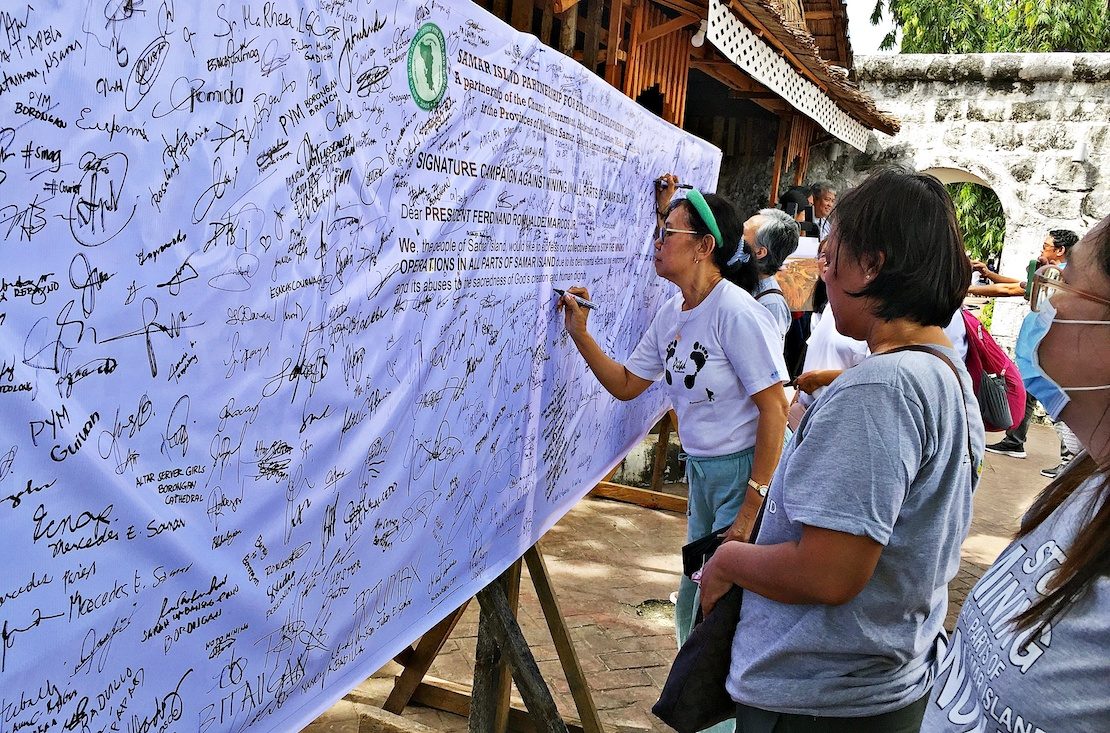
TACLOBAN CITY, Philippines – The Diocese of Borongan led on Saturday, January 20, a prayer rally which called for the immediate end to mining in the entire island of Samar.
The rally, dubbed the Island-wide Jericho Prayer Assembly, was led by Bishop Crispin Varquez of the Diocese of Borongan and held at the Immaculate Conceptcion Church in Guiuan town, Eastern Samar province. Other dioceses in Samar – Catarman and Calbayog – and the Archdiocese of Palo in the nearby island Leyte also sent delegates to the anti-mining event.
In his homily during the Mass, Varquez urged the hundreds who attended the event to be more circumspect of what is happening with the environment and the world. “We have to think globally, act locally,” he said.
“Whatever damage done in any part of the world, it will affect us entirely. If Homonhon (island) is ruined, it will affect the whole Philippines, and the whole world because everything God created is interrelated, including humans,” Varquez said.
Varquez’s homliy also lifted from Laudato Si (Praise Be To You), the second encyclical of Pope Francis. He quoted paragraph 217: “Therefore, the ecological crisis is also a summons to profound interior conversion.”
Early last year, Varquez issued a statement calling on the government to do something to the mining operations on Homonhon Island in Eastern Samar, saying the impact of mineral extraction on people and the environment were worrying.
The diocese is “very much disturbed” by escalating mining activities on Homonhon Island in Guiuan town, Varquez said.
The Department of Environment and Natural Resources has issued Mineral Production Sharing Agreements in Homonhon and Manicani Islands with the following mining companies: Chromiteking, Techiron Resources, Nickelace, Verrum Terra Geoscience, Global Min-Met Resources, Emir Mineral Resources, and Hinatuan Mining.
According to the Mines and Geosciences Bureau Eastern Visayas (Region 8), the four mining companies actively operating in Homonhon Island are Techiron Resources, Emir Mineral Resources, King Resources Mining, and Global Min-met Resources.
Homonhon Island is part of the municipality of Guiuan in the province of Eastern Samar. Historically, it was one of the early sites of contact between Europeans and East Asians. Homonhon Island is believed to be the first landing place of the fleet of Portuguese explorer Ferdinand Magellan, who led a Spanish expedition to the East Indies between 1519 and 1522.
The island has 8 barangays (villages) that have rich deposits of mineral resources such as chromite and nickel.
Carmi Macapogao of the Homonhon Environmental Advocates and Rights Defenders (HEARD) said that the prayer rally was significant for them. She said the strong support of the Catholic Church and other non-government organizations will finally get the attention of concerned government agencies to the various violations done by the mining companies.
“We join the call to stop mining operations because despite being a historical site, there is a lot to offer in eco-system services and economic opportunities where you don’t no need to disturb nature and instead we can utilize it sustainably,” Macapogao said.
She added that from the start of the mining operation, there was no proper information dissemination. The mining companies did not inform the affected communities what benefit will the residents get from these extractions, Macapogao said.
We have been experiencing every day so much dust and noise pollution due to the proximity of the mining operations to our communities. Imagine there are four mining companies actively operating 24/7 on our island of Homonhon, Macapogao told Rappler.
Macapogao also said that some of their sources of drinking water were already silted. Although there are still other sources of drinking water, especially during the dry season, the problem is during rainy days. The water is no longer safe for drinking because of too much siltation during the wet season.
Another concerned Guiuananon who also joined the prayer rally was Jaerim Sison Tumanda. He told Rappler, he was happy to attend the anti-mining event because he was an advocate for nature, as well as, being a father.
Tumanda said the issue was not just about the anti-mining and pro-mining. “It’s not about the fight between the pro- and anti-mining. Do we hate people working in the mining industry? Of course not. We do not hate them, we care for them.”
Mario Ian Mosquesa who represented the private sector at the Regional Development Council (RDC) of Eastern Visayas, and one of the hundreds of people who attended the rally, told Rappler that there was already a resolution enjoining the members of the RDC to monitor mining issues in Manicani and Homonhon. The monitoring will include other agencies and sector representatives.
“This is a very good move of the Dioceses of Samar Island so that the issue would gain ground in terms of awareness of the people and this is also important because it’s not the only mining issue in Manicani and Homonhon but practically the whole of Samar Island is a mineralized area,” Mosquesa said.
“It’s not preposterous to think that if they (mining companies) succeed here, the next level of mining operations would be in Samar Island,” Mosquesa added.
No comment from DENR
Rappler tried to get the side of the Department of Environment and Natural Resources (DENR) of Eastern Visayas, particularly from the heads of the Mines and Geosciences Bureau (MGB) and the Environmental Management Bureau (EMB). However, an office staff explained that their directors are barred from issuing any statements and press releases unless with prior consent from the Office of the DENR Secretary.
A copy of the memorandum from the DENR secretary dated April 25, 2023, says that all bureau and regional executive directors, including the heads of provincial and community offices of the agency, are “all instructed to secure written clearance from the Office of the Secretary, through the Special Communication and Initiatives Services (SCIS) prior to releasing any statement or press release concerning the Department’s plans, programs, activities, and policies.” The memorandum is signed by Secretary Antonia Yulo Loyzaga.
The MGB, on top of being in charge of the administration and disposition of mineral lands and mineral resources of the country, is also a member of the Multipartite Monitoring Team (MMT) which, together with the EMB, the municipal and provincial LGUs, and certain people’s organizations, supposedly conducts periodic inspections of all active mining companies on whether they comply with regulations and standards as well as with existing and relevant environmental laws. – Rappler.com
Rowel Montes is an Aries Rufo Journalism Fellow for 2023-2024.
Add a comment
How does this make you feel?
![[The Wide Shot] Peace be with China](https://www.rappler.com/tachyon/2024/07/wideshot-wps-catholic-church.jpg?resize=257%2C257&crop=311px%2C0px%2C720px%2C720px)
![[OPINION] A critique of the CBCP pastoral statement on divorce](https://www.rappler.com/tachyon/2024/07/TL-cbcp-divorce-statement-july-19-2024.jpg?resize=257%2C257&crop=285px%2C0px%2C722px%2C720px)


![[The Wide Shot] Was CBCP ‘weak’ in its statement on the divorce bill?](https://www.rappler.com/tachyon/2024/07/cbcp-divorce-weak-statement.jpg?resize=257%2C257&crop=258px%2C0px%2C719px%2C720px)


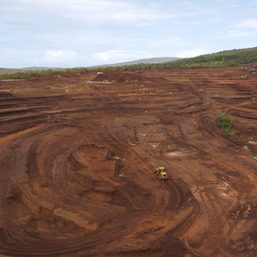
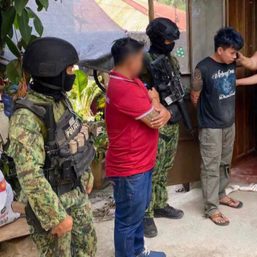
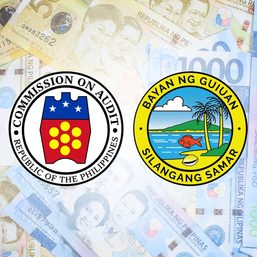



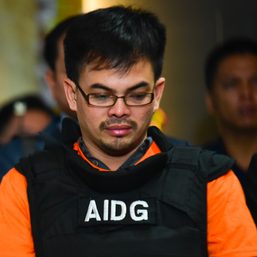










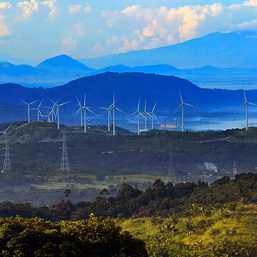
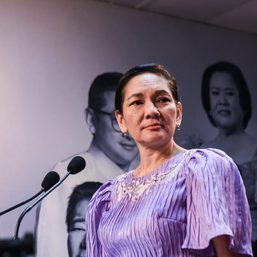

There are no comments yet. Add your comment to start the conversation.